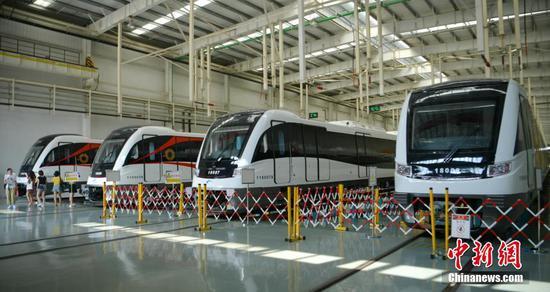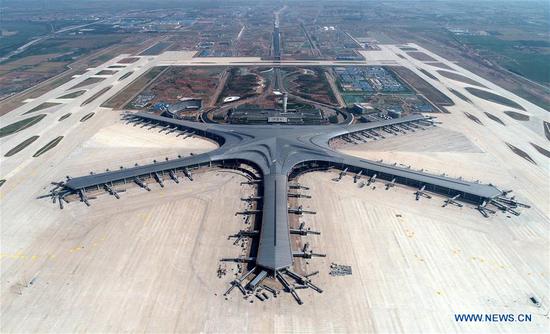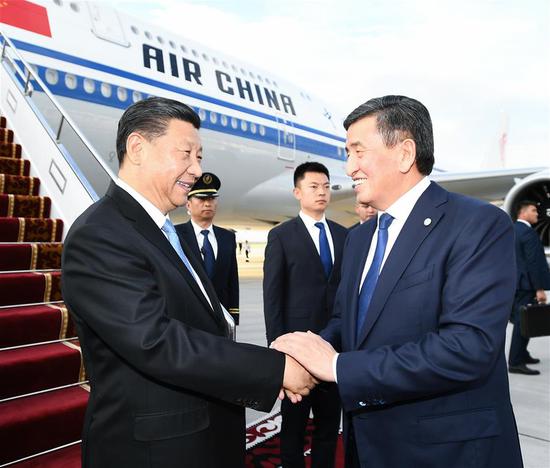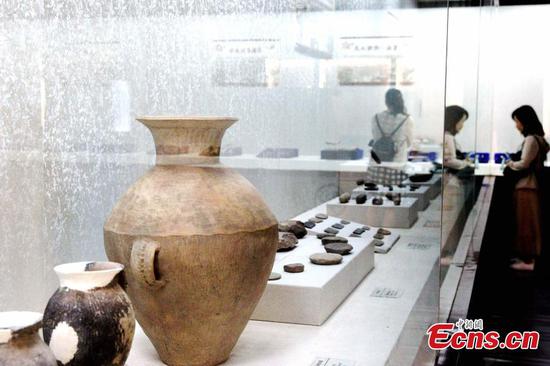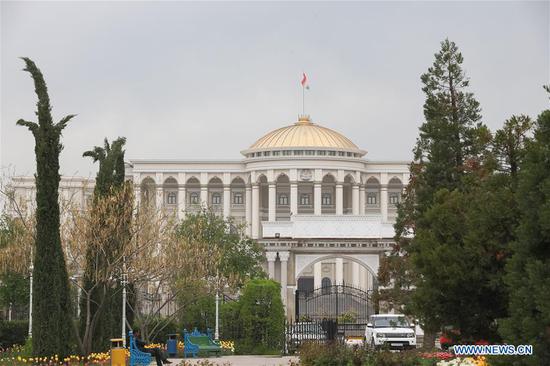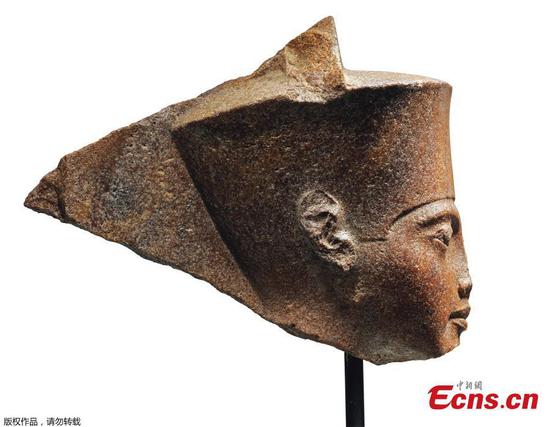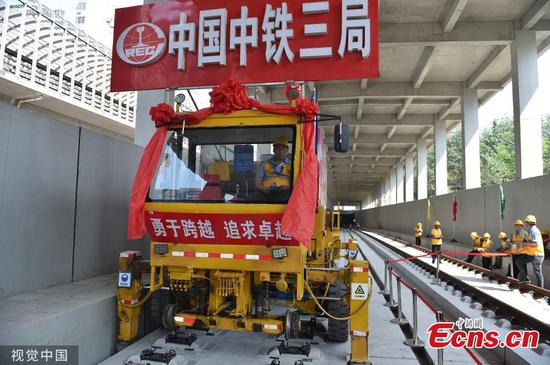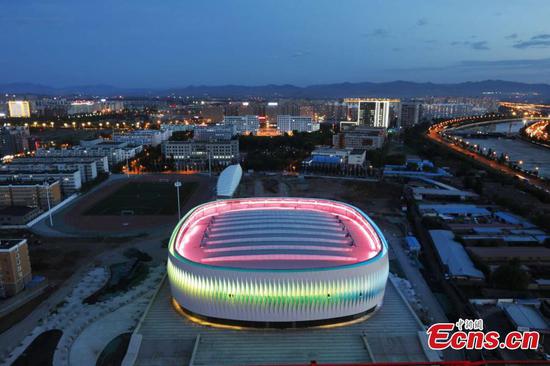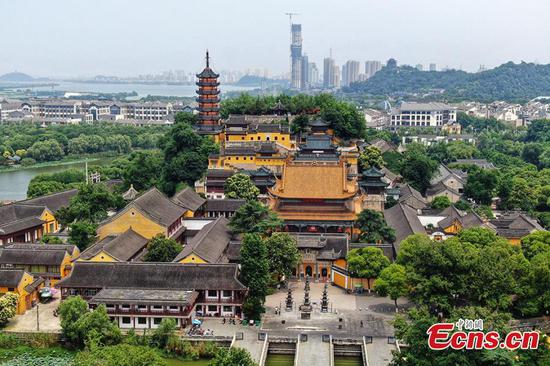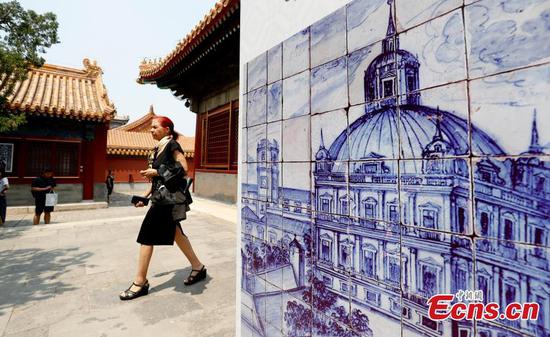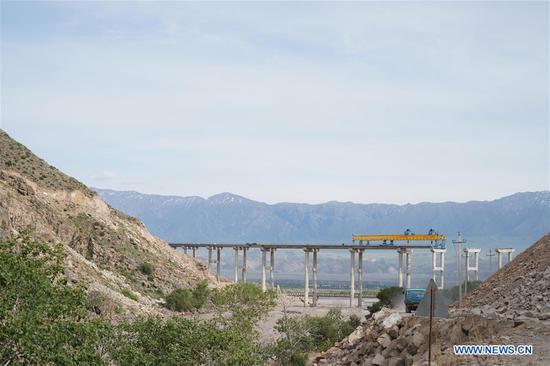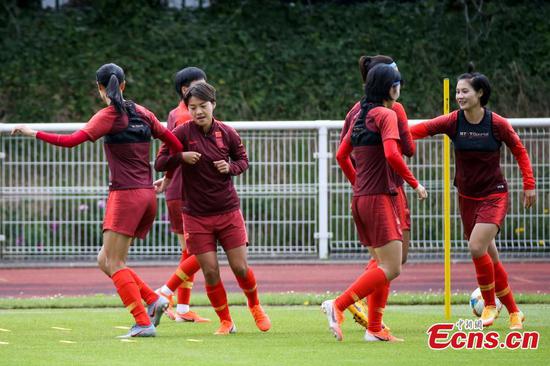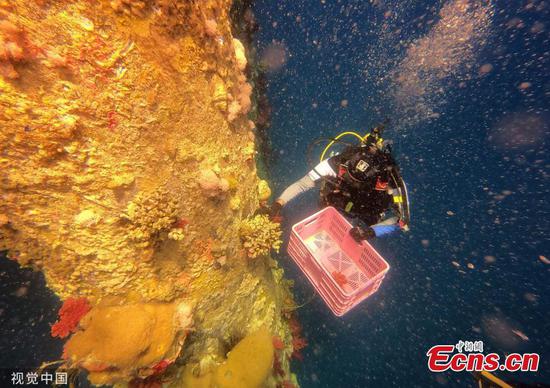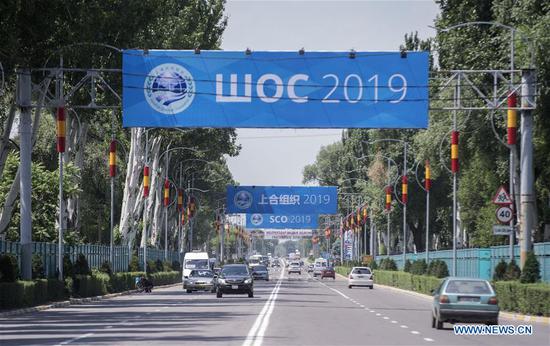
Vice-Premier Liu He (second left), Shanghai's Party Secretary Li Qiang (second right), China Securities Regulatory Commission Chairman Yi Huiman (left) and Shanghai Mayor Ying Yong jointly launch the STAR Market in Shanghai on Thursday. (Photo by Che Liang /for China Daily)
China inaugurated its Nasdaq-like STAR Market at the Shanghai Stock Exchange on Thursday, kicking off the country's much-anticipated capital market reform.
Yi Huiman, chairman of the China Securities Regulatory Commission, presided over the launch ceremony of the STAR Market-also known as the science and technology innovation board-at the Lujiazui Forum, which is being held in Shanghai on Thursday and Friday.
President Xi Jinping announced in November that the new board would be launched at the Shanghai Stock Exchange with a pilot registration system.
As of Thursday, the exchange had received applications to list on the new board from 123 companies, six of which have begun the registration process and are awaiting final approval from the commission.
Yi said the launch of the STAR Market and the experimental registration system are evidence of the deepening reform and opening-up of China's capital markets. It will help to advance the supply-side reform of China's financial sector, promote deeper integration of technology and capital and spur economic development through innovation.
Huang Hongyuan, chairman of the Shanghai exchange, said that the first companies will start trading on the STAR Market within two months.
"The new board will provide an ideal ecosystem for science and technology startups. With that, the capital market can provide support for the development of these companies in a real sense," he said.
Vice-Premier Liu He said at the opening ceremony of the Lujiazui Forum that the launch of the STAR Market will stimulate the entire capital market to nurture more technologically innovative companies and facilitate economic transformation through constant exploration and experimentation. "The market should be the true decision-maker for the new board, while unnecessary administrative intervention should be reduced," he said.
Liu said that continued efforts should be made to prevent and defuse financial risks, and the construction of financial infrastructure should be continued. China's long-term positive economic growth will not be altered and there is still huge room for development in the country's macroeconomy, he said, adding that with ongoing structural deleveraging and a sufficient reserve of policy tools, China has all the confidence to face any challenges.
While looking forward to the upcoming trading on the new board, Yi of the commission also warned of the possibility of short-term speculation due to unbalanced supply and demand. Individual investors in particular should conduct rational research and keep a close eye on information disclosures. He also said that the pricing of STAR Market companies will be completely determined by the market, which is a fundamental difference from all existing boards. Meanwhile, delisting will become more common with the introduction of the new board.









